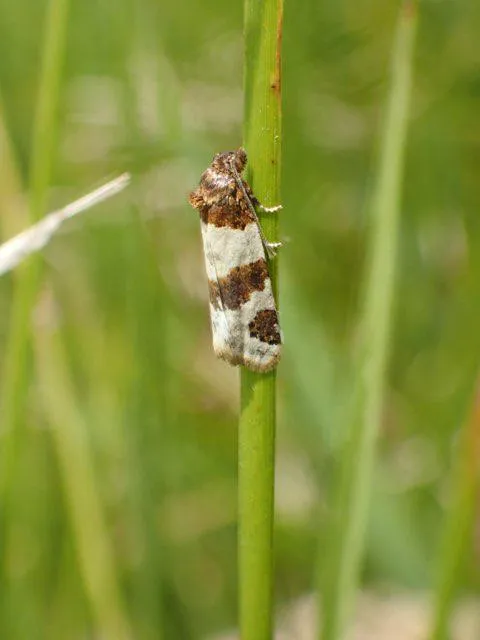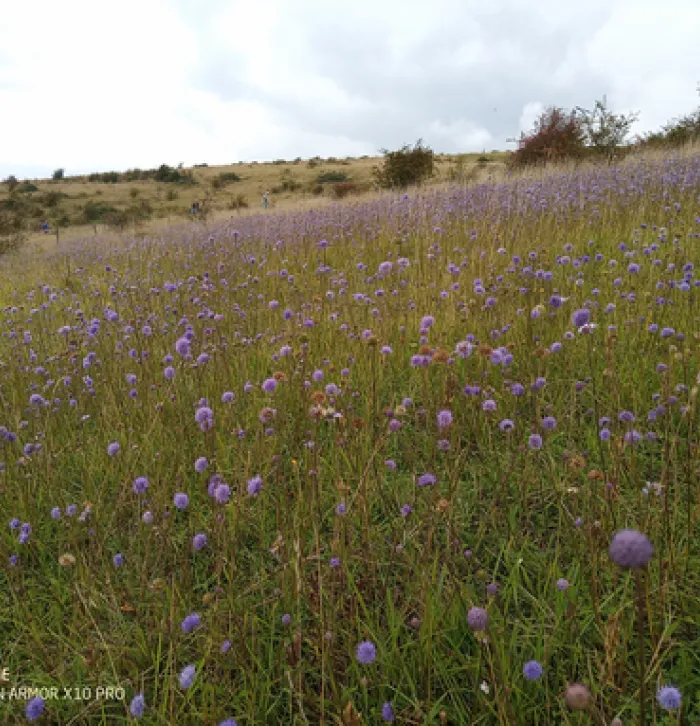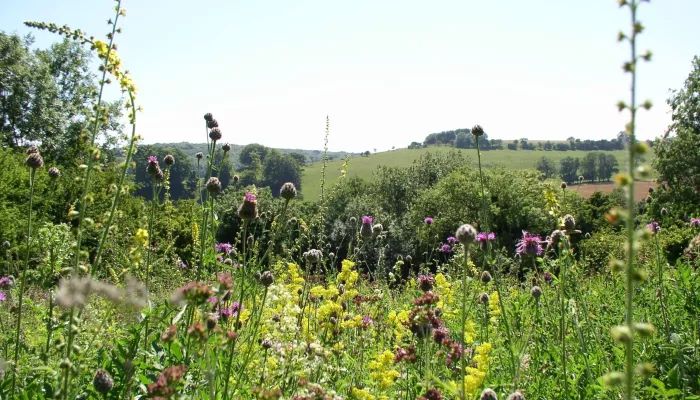
The breakthrough came when Rebecca Levey, an ecologist with Butterfly Conservation, was surveying the site with volunteers searching for Straw Belle caterpillars. Spotting the small chalky-white moth with distinctive orangey-brown markings, she immediately recognised its significance and contacted Dave Shenton, Kent Wildlife Trust’s Local Wildlife Sites Officer and Kent County Moth Recorder.
Dave quickly arrived to confirm the identification. He said: “This is mind-blowing. I couldn't quite believe what I was seeing. Has it been hiding in plain sight here all these years?”
By the end of the survey, the team had recorded 13 individual moths, revealing a previously unknown population and sparking hope that the species may have quietly persisted in its former English stronghold.
Lydden Temple Ewell has been managed by Kent Wildlife Trust since 1964, where an original 70 acres was purchased at Lydden Temple Down. In 1998, the entire site was designated as a National Nature Reserve, and today features sweeping downland landscape and precious chalk grassland habitat, supporting a wide range of species from the Adonis Blue butterfly to the Wart-biter cricket, and now, the Tiree Twist.
“This rediscovery is both emotional and thrilling,” said Levey. “Now the real work begins: uncovering the exact habitat this moth needs so we can help secure its future.”
Kent Wildlife Trust and Butterfly Conservation will now look to prepare habitat assessments and conservation plans to ensure this remarkable find marks the beginning of a comeback.
Supporters can sponsor a quarter acre or more of this remarkable reserve as part of Kent Wildlife Trust’s Legacy Landscapes, championing chalk grassland and the many species that rely on it for survival. Lydden Temple Ewell is one of the first sites in Kent to be part of this important programme to support the conservation management of precious habitats.

Legacy Landscapes
Sponsor a plot of Lydden Temple Ewell to become a champion of chalk grassland

